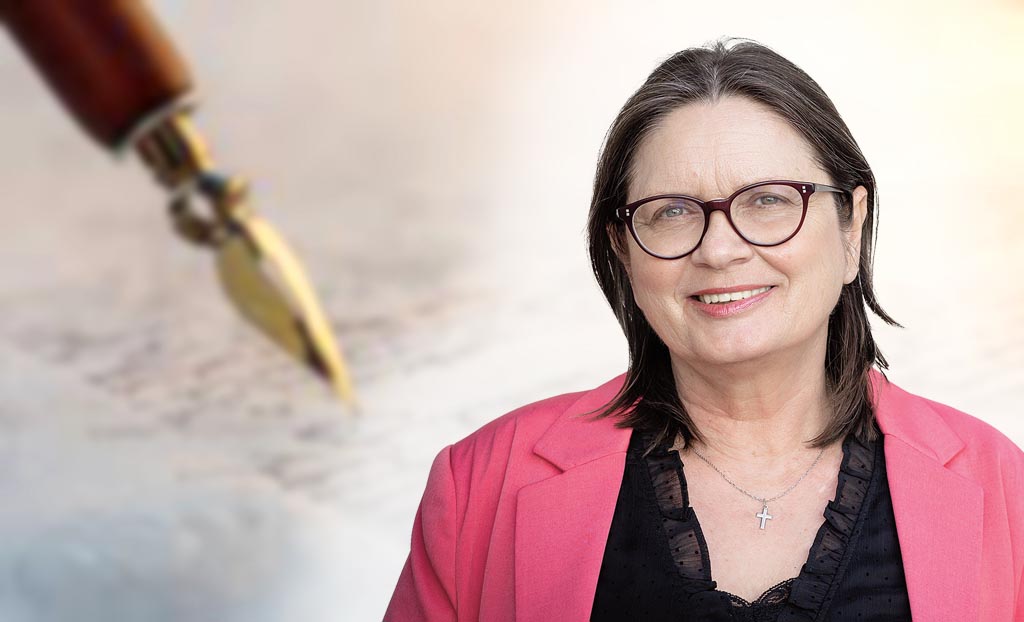By: Dr Andreja Valič Zver
Slovenia and Europe have enough of their own problems, and South Africa is far away. However, not so far that the tensions in this country, rich in fertile land, minerals, ores, and precious stones, would not interest us.
After all, the region has been inhabited and cultivated for centuries by descendants of Europeans, primarily of Dutch and German origin. Today, they are known as the Boers or Afrikaners, with around 7 million still living in a country of 63 million people. Many Afrikaners have emigrated worldwide. They speak Afrikaans, which is essentially a Dutch dialect. They fled from Europe, torn apart by bloody religious wars, mostly in the 17th century. When the navigator da Gama circumnavigated Africa in search of India in 1497, he named its southernmost cape the Cape of Good Hope. And indeed, for many persecuted Protestants, especially the Huguenots, this part of the world represented their last hope for survival. Over the centuries, they built a refuge that attracted immigrants from all over the world. You might ask, what about slave labour in the mines, on plantations, and elsewhere? Of course, we all condemn and regret this dark side of South Africa’s development but let me add that the worst slave traders were the Arabs, long before the Europeans. In the 19th century, Portuguese, Spanish, and Dutch colonial dominance faded, while the British Empire grew stronger and sought control over South Africa. In the two Boer Wars at the end of the 19th and the beginning of the 20th century, the British displayed their brutality, destroying and exterminating entire Boer villages, while those who survived were forced into concentration camps.
In the last decades of the 20th century, South Africa was associated in the minds of the average European with two concepts: apartheid and Mandela. Apartheid was a system that discriminated against the black population, while Nelson Mandela became a symbol of the struggle for their rights. His long prison sentence elevated the Marxist and communist Mandela to a national hero and the first black president of the Republic of South Africa. Mandela triumphed on the world political stage. One could say he was a “pop star”. All contemporary political leaders rushed to be photographed with him and to express their unwavering support for the struggle of black South Africans for their rights. However, even then, the story had its dark sides. Reports slowly began to surface, not only about Mandela’s inner circle enriching themselves but also about the rapid rise of black crime and unimaginable violence against white people. In recent years, violence has escalated to such an extent that U.S. President Donald Trump offered refuge in the United States to white farmers from South Africa and expelled the South African ambassador. White farmers, or Boers, are arming themselves as much as the law allows. Their well-maintained farms are being turned into fortresses surrounded by barbed wire. The windows of their homes are secured with steel bars, and bedrooms have additional security systems. Yet, despite all precautions, a vast number of people in South Africa have been brutally attacked and murdered. Once-thriving farms are becoming abandoned land. One could speak of a true genocide against the Boer population, yet this crisis finds no place in the mainstream global media. In this case, too, one might say: Thank God for Musk and his platform X, which brings us uncensored news into our homes, raising awareness rather than indoctrinating us. For those who wish to follow the current situation in South Africa, I highly recommend following the X user “Boer” (@twatterbaas), who provides insight into the daily life of a country shaken by crime and growing racial tensions. This time, black racism is on the rise – exactly the opposite of what was promised when the African National Congress, under Mandela’s leadership, took power in 1994.
To top it off, European Commission President Ursula von der Leyen recently visited South Africa, promising the government $5 billion in aid and ensuring eternal friendship. In light of the fact that South Africa has sued Israeli Prime Minister Netanyahu at the International Court of Justice and secured an arrest warrant against him, one must once again question the sanity of Brussels’ (and Slovenia’s) foreign policy. At a time when the state of Israel is fighting terrorists of all kinds in the Middle East and when European money is desperately needed to strengthen its own defence capabilities, we are throwing taxpayers’ money at a regime on the other side of the world that allows and even encourages the killing of its own citizens. The world is upside down!

